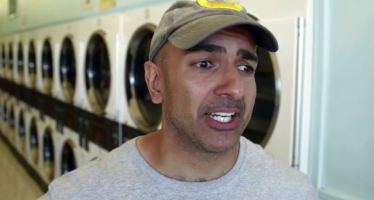Top two primary intensifies anonymous online attacks
June 4, 2012
By John Hrabe
 Patricia McKeon is the prohibitive favorite to win the 38th State Assembly seat. As the wife and campaign fundraiser of Rep. Howard “Buck” McKeon, the influential chairman of the House Armed Services Committee, she has built-in name ID and a lucrative fundraising Rolodex. Both are Republicans.
Patricia McKeon is the prohibitive favorite to win the 38th State Assembly seat. As the wife and campaign fundraiser of Rep. Howard “Buck” McKeon, the influential chairman of the House Armed Services Committee, she has built-in name ID and a lucrative fundraising Rolodex. Both are Republicans.
Her frontrunner status has allowed her to avoid public scrutiny. She’s routinely skipped candidate forums and declined media requests. Her campaign consultant told CalWatchDog.com that she is “maxed out going door to door.” But no matter how many candidate forums she skips or press requests she declines, McKeon can’t shake her toughest critic — the anonymous blogger behind the “Really Patricia?” website, whose full URL is: www.patriciamckeonforassembly.com/.
The website has chronicled McKeon’s every move, even detailing minor alterations of campaign photos. And the relentless attacks have had some success in framing the mainstream media’s coverage of the race. Both the Los Angeles Times’ and Ventura County Star’s profiles of the race prominently referenced “the emergence of an anonymous website that lampooned Patricia McKeon” as a defining element of the campaign.
While the anonymous blog is a headache for the McKeons, it could also signal a broader trend brought about by California’s new top-two primary system. That’s because the top-two primary has, in many cases, expanded the field of competitive candidates. In the past, candidates or independent expenditures that went on the offensive risked turning off swing voters they hoped to court. However, anonymous websites give candidates a venue of attack that insulates the campaign from voter backlash. The jungle primary free-for-all allows candidates or independent expenditures to point the finger at lesser known, but still viable, candidates.
With two weeks to go until Election Day, two intra-party primary feuds, McKeon’s Southern California state assembly race and a Northern California congressional campaign, have provided insight into this cycle’s use of anonymous online attacks.
38th assembly race defined by anonymous website
CalWatchDog.com contacted the “Really Patricia?” blogger to get his or her perspective on the motivation for the website, online anonymity and the fear of political retaliation. “Strangely, I personally have not yet faced any threats, but that may be because the McKeons may not have figured out who I am yet,” the anonymous blogger told CalWatchDog.com. “I run the site because I am a conservative Republican and am disgusted by the ethical murkiness of the McKeons and their lust for personal power and financial gain. No one has the guts to stand up to them and tell the truth about it.”
The blog can be credited with pushing two major developments in the campaign. In February, National Journal reported that Patricia’s state campaign had collected roughly $35,000 from “federal lobbyists, lobbying firms, and their employees, as well as military contractors and executives in firms in the defense and aerospace sectors.” A day before the National Journal story, the anonymous blog had an analysis of McKeon’s campaign disclosure statement, including several defense industry contributions.
The second media controversy propelled by the blog was the endorsement flap involving Republican State Sen. Tony Strickland, R-Moorpark. Strickland pulled his endorsement of lifelong friend Scott Wilk, a community college trustee and small businessman, in order to endorse McKeon’s candidacy. The anonymous blog published several posts on the topic and reappeared after a two-month hiatus to reignite the endorsement storyline.
McKeon filed complaint with district attorney
So, who is this mysterious blogger? In January, Patricia McKeon filed a complaint with the Los Angeles County District Attorney’s office to find out. Her complaint alleged a possible violation of state election rules against cyber-squatting. At first, the complaint was enough to prompt the blogger to pull the plug on the site.
“Consequently, I have consulted with a lawyer and have been assured that they have no legal grounds on which they could actually win a case,” the blogger wrote via email. “I am exercising my 1st amendment right in a political area and they are public figures.”
Free speech experts echoed the blogger’s interpretation of the law. “Generally, a website launched by someone not directly affiliated with a campaign, made up of opinion or parody, enjoys full protection as free speech,” explained Ken Paulson, president and CEO of the First Amendment Center. “An internet service provider wouldn’t typically pierce that veil of anonymity absent a court order, and that’s not likely if the content is unflattering, but not defamatory.”
The anonymous anti-McKeon blogger says that a complaint has been filed with the site’s domain registrar for failing to provide accurate contact information. Ultimately, the Los Angeles County DA’s office declined to open a criminal investigation into the matter. When asked about the complaint, McKeon’s campaign consultant Joe Justin said, “With an economy in shambles, there is no place for this type of lame politics of personal destruction.” The phrase “politics of personal destruction” was popularized by President Bill Clinton during his impeachment hearings.
“Risks with speaking out”
Anonymous attacks and whisper campaigns aren’t political innovations. “Anonymous political speech is a long-held American tradition and is protected under the First Amendment,” said Paulson. “When the signers of the Declaration of Independence sent that historic document to King George, they didn’t sign it.”
Paulson added, “There are risks with speaking out, and anonymous speech helps preserve the free flow of ideas in a democracy.” Although the First Amendment protects anonymous political speech, online tracking programs and greater public and private surveillance make it harder to pull off. Lee Tien, a senior staff attorney with the Electronic Frontier Foundation, believes the heydays of anonymous activity may be behind us.
“There is an architecting of the world that makes remaining anonymous more difficult,” he said. Nevertheless, Tien says there are a number of reasons why a person might want to remain anonymous. “An Islamic activist or Christian activist or a gay rights activist might worry that their speech will get them in trouble.”
Tien also referenced the Supreme Court’s precedents involving anonymous political activism. In NAACP vs. Alabama and its companion case, Bates vs. City of Little Rock, the court protected the right of political organizations to keep their membership lists private. The unconstitutional laws, which were at issue in the cases, were designed to discourage people from supporting the civil rights movement.
“There is a role for anonymous political activity: the civil rights movement depended on it during the 1950s,” said John J. Pitney, Jr., a political science professor at Claremont McKenna College. “But legal and ethical issues arise when it is nothing more than an off-the-books tactic of a political campaign.”
LaMalfa campaign’s off-the-books tactic
A Northern California congressional race offers a case study in those legal and ethical concerns from “off-the books” campaign tactics. Mark Spannagel, the chief of staff and campaign aide to State Sen. Doug LaMalfa, R-Oroville, was recently identified as the publisher of an attack website targeting former Republican State Sen. Sam Aanestad.
Aanestad filed a complaint with the Federal Elections Commission against LaMalfa for numerous violations of federal election law. Among the worst alleged violations, the website falsely attributed its contents to a lesser-known Republican candidate, Michael Dacquisto. The Redding Record Searchlight reported, “The site initially posted with a disclaimer at the bottom, “FREE THINKERS FOR DACQUISTO,” according to a screen shot submitted by the Aanestad campaign.”
Is a dirty trick worthy of a federal case? After all, the founding fathers commonly employed anonymous attacks and pseudonyms to make their case. We asked Barry Pruett, chief legal counsel for the Aanestad for Congress campaign, to explain why the Spannagel stunt is any different from historical examples of anonymous political speech.
“The Silence DoGood letters and Federalist Papers were anonymous and discussed and analyzed the philosophical nature of the rule of law in a limited government and the concepts of federalism,” he said. “Neither of these historical documents sought to defame and libel an oral surgeon anonymously and for personal gain like Doug LaMalfa’s fake website.”
There are also campaign finance disclosure requirements that come into play. “It gets murkier if someone inside a campaign launches an attack website because there are expenditure disclosure requirements,” said Paulson. “That’s an accountability matter rather than free speech.”
Government regulators ready to step in
The growing trend of anonymous attacks hasn’t escaped the watchful eyes of government regulators. In the state of New York, two bills are pending that would “virtually do away with anonymous online postings by requiring Web administrators, upon receiving a complaint, to take down any comments to which the writer has not attached his or her name,” writes Gene Policinski, senior vice-president and executive director of the First Amendment Center.
Earlier this year, California’s political watchdog sparked an online uproar after floating the idea of a new disclosure requirement for political blogs. Ann Ravel, chair of California’s Political Practices Commission, declined to comment for this story because the agency may be forced to deal with complaints from the websites in question. However, from our interview with Ravel back in April, she shed some light on her views about the use of anonymity in campaign websites.
“The idea is not to go after anonymous blogs,” Ravel told CalwatchDog.com in an April interview. “There needs to be the ability for people to post online anonymous speech that is grassroots without retribution.”
For now, at least, the anonymous attacks will continue.
Related Articles
Yet another computer fiasco in home of Silicon Valley
Feb. 9, 2013 By Chris Reed Friday’s news that state Controller John Chiang had fired the second contractor hired to
Kashkari draws a media crowd
Neel Kashkari, Gov. Jerry Brown’s Republican challenger, has been playing a long game. That hasn’t been immediately evident from the frenetic
Early Returns: Democrats could lose super-majority in State Assembly
It’s going to be a very long night for California political observers. Just eight months after corruption scandals cost California




